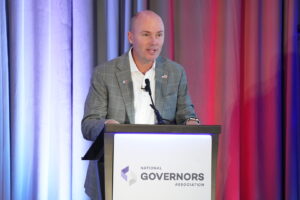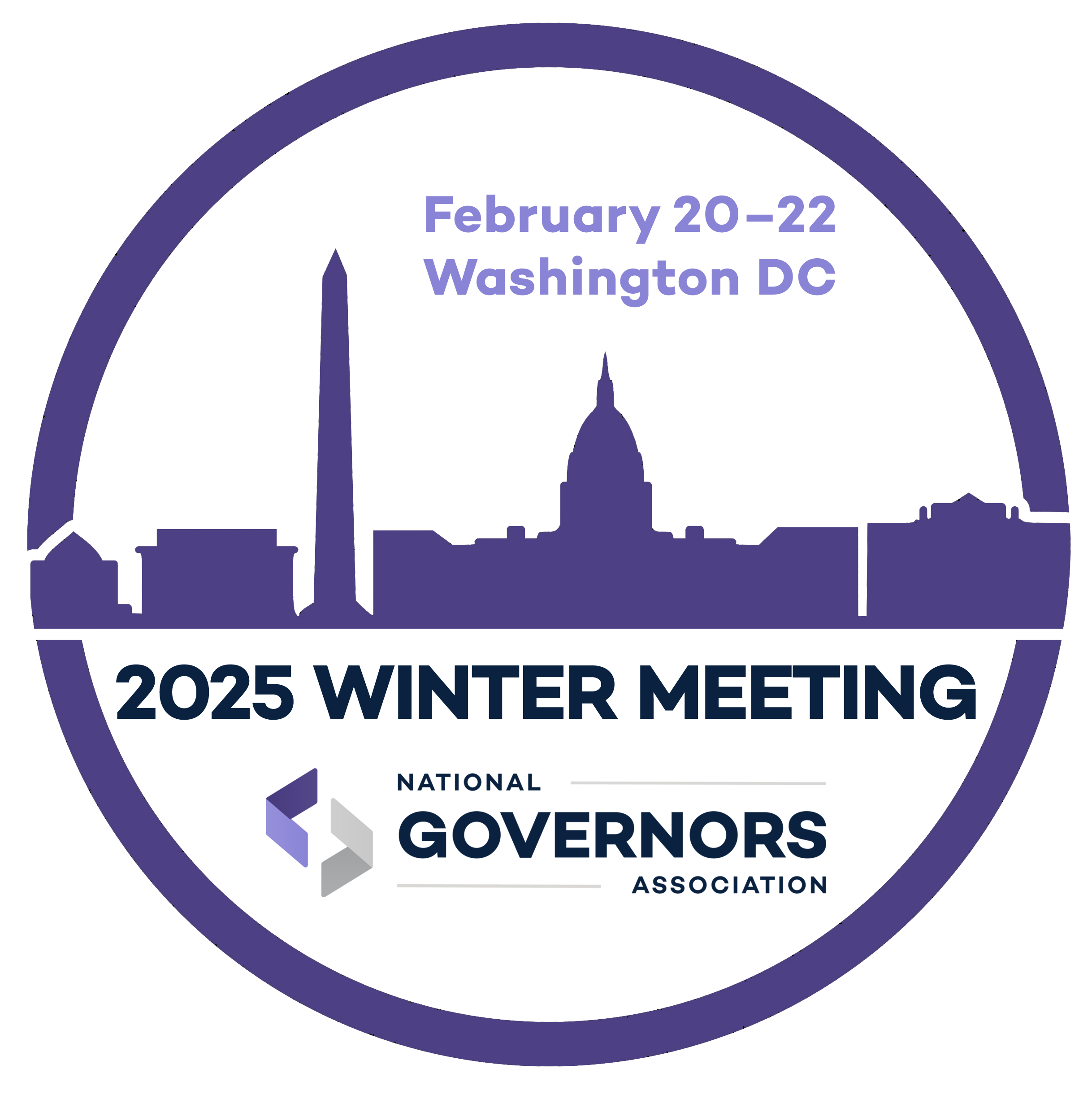“Too many of our young people think this is the only way we do politics. They assume this is normal in our country because it’s the way it’s been over the past 10 years.”

Kicking off a Colorado convening in support of his NGA Chair’s Initiative: Disagree Better, Utah Governor Spencer Cox underscored why college and university campuses are a focus of the project’s efforts.
Research shows that outreach to young people is one of the most effective depolarization strategies, Governor Cox explained. Cultivating “intellectual flexibility, humility, curiosity, empathy and open mindedness” in college students before their views become “hardened” is essential in helping upcoming generations bridge the partisan divide.
Yet, too often, the prevalence of cancel culture in higher education produces an atmosphere that stifles debate.
“We’ve come to recognize that we can’t disagree better if there’s an environment that scares people away from political discourse entirely,” Governor Cox shared. “In other words, toxic conflict is bad, but so is the absence of conflict altogether.”
To explore strategies to help colleges Disagree Better, Governor Cox welcomed John Tomasi, president of Heterodox Academy (HxA). Tomasi and colleagues founded Hxa in 2015 in response to the lack of ideological diversity they’d noted in academic circles, and its negative impact on the quality of research. With a mission to advance the principles of open inquiry, viewpoint diversity and constructive disagreement, the Academy has grown to over 62,000 members – faculty, staff and students – across 1,800 campuses and higher education organizations.
If harnessed in the right way, diverse viewpoints should be a strength – not an obstacle, Tomasi said. “In the world of ideas, [and] in the world of democracy,” progress comes when a variety of different viewpoints are considered.
“It’s disagreement, it’s people who see the world differently [coming] together in constructive mechanisms [that] create breakthroughs,” he stated.
HxA works to organize events, workshops, and communities in higher education settings across the nation – including campus and virtual communities focused on specific disciplines like economics, STEM and classics.
To promote constructive disagreement and encourage viewpoint diversity, HxA communities work to model five principles:
- Make your case with evidence
- Be intellectually charitable
- Be intellectually humble
- Be constructive
- Be yourself
Tomasi noted that these values are even more critical in diverse societies like the United States: “This is one of the great lessons of American history: Without the right institutions in place, diverse societies will just be at war. But if you can devise the right kinds of institutions, you can take these differences … and magnify [them] to the benefit of everyone. It’s the secret sauce of liberal societies, and it’s the secret sauce of universities, too.”
In a concluding keynote address, Keith Allred, executive director of the National Institute for Civil Discourse (NICD), examined the importance of constructive disagreement from a Constitutional perspective. Through NICD’s CommonSense American initiative, Allred works to revive civility and bring Republicans, Democrats and Independents together to find and champion legislative solutions.
Drawing on statements of Founding Fathers from George Washington to James Madison, Allred explained that the Founders recognized extreme partisanship as the greatest threat to democracy. Accordingly, they designed the U.S. system of government to withstand it.
“They were looking at a world [in which] dozens of attempts at self-government over the preceding 3,000 years had all failed,” Allred said. “This is the pattern they saw over and over again, and it’s primarily what they were trying to solve for. So you really cannot understand the American Constitution or its attendant institutions without understanding: First and foremost. they were trying to create a system that would be robust to what they called the ‘spirit of party.’”
Consequently, the ability to “understand and engage differences constructively” is “more important than ever because the nation is larger and more diverse than the Founders imagined,” Allred stressed.
Imparting civic knowledge and preparing students to engage differences is imperative for overcoming toxic polarization. Plus, it’s essential for student success.
“They will live out their personal and professional lives in … not only one of the most diverse [societies] politically but also the most diverse culturally and economically,” Allred stated. “You simply can’t be successful in the highly diverse pluralistic American society without being able to engage differences constructively.”
Allred also sounded a note of caution. Pointing out that “we are at one of the points of greatest polarization in our history,” Allred underscored: “So for all the American generations that have been caretakers for this unique system of government… On this point that the Founders most warned us about, our generation has the worst record.”
“If we fail, this will be the point on which we fail,” he concluded.
Wrapping up the event, Governor Cox described today’s level of toxic polarization and institutional decay as “Madison’s worst nightmare.”
“This is the issue of our lifetime,” Governor Cox stated.
Visit the Disagree Better webpage to stay up to date on future events, find resources on healthy conflict and learn how to get involved.













